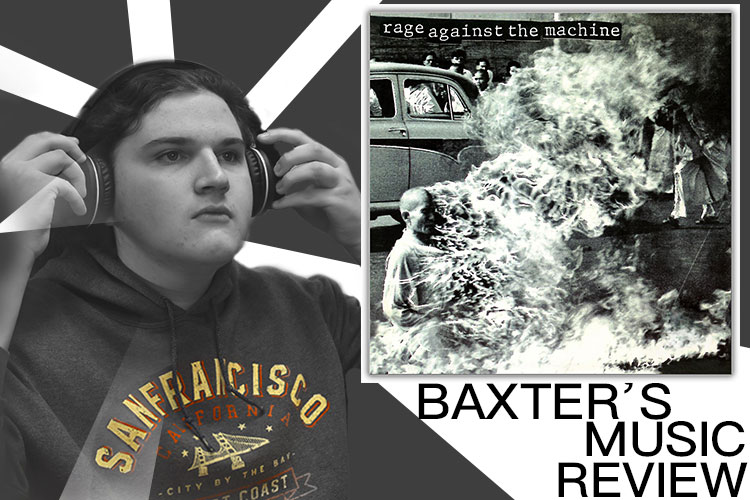
26 years after its debut, Rage Against The Machine’s first album is more relevant than ever.
Protest music is exactly what it sounds like – music that’s protesting something. Music changes with time, following the ebb and flow of societal consciousness and inspiring change and reform in its listeners. Like most art, it is highly influential on the sentiments of its listeners. So when an artist makes a successful protest song, it can influence a generation.
Though politically-fueled tunes have been relevant in America since the early 19th century, these songs made their most dramatic influence on popular culture in the 1960s. The rise of counterculture groups in this time period made a foray into the popular music of the time. Between the Civil Rights Movement and the Vietnam War, these “hippies” had plenty of subject matter to inspire songs about peace and love. Artists like Bob Dylan wielded their music as a peaceful force for change, with songs such as “The Death of Emmett Till” condemning the racism that resulted in the death of an innocent African American boy. The musical revolution didn’t end in the 1960s though, as the birth of reggae in Jamaica saw songwriters such as Bob Marley in the spotlight, preaching peaceful revolution and harmony. In the eighties, London’s punk rock movement exploded, with groups such as The Clash and Sex Pistols making waves in the evolution of rock music’s role in political movements. The work of these protest artists culminated in the 1992, with the release of the self-titled record Rage Against The Machine.
Coming off the heels of the punk movement of the eighties, the four-piece American band Rage Against The Machine blasted into the rock scene with the smash success of their debut album in the early years of the new decade. Moving parallel with the grunge movement in the evolution of punk-rock, Rage took the spirit of the revolution in a different musical direction. With a fusion of hip-hop, funk, metal, and punk, the band were revolutionaries in their instrumentation in addition to politics. The experimental work of guitar-god Tom Morello produced a signature sound, and the funk inspired bass work of Tim Commerford is featured prominently, refusing to be drowned out by the other instruments. Drummer Brad Wilk did an excellent job of incorporating the frantic drums of punk music, but the most important part of Rage’s unique sound was vocalist and songwriter Zack de la Rocha, who carried the energy of the band’s message with his masterful incorporation of hip-hop and metal vocal styles.
The lyrics of all of the songs on the debut album were strongly political in nature, criticizing everything from a crooked justice system to a society that discourages individual thought. These songs, though commentary on the United States government’ failures, were most relevant because they carried with them no political allegiance. Instead of blaming an opposite political party, de la Rocha places the failures of the United States moe broadly on anyone who remained complacent in corruption or violence. “Killing In The Name” was Rage’s breakout song, a heated protest song speaking out against police brutality. The searing chorus of this song stood out, as de la Rocha spits out the line, “You justify those that died by wearing the badge, they’re the chosen whites.”
Rage Against The Machine is on what seems to be a permanent hiatus. After a brief tour in 2010, the group dissolved to work on separate projects. Despite being nearly 30 years old, the music of Rage still inspires people to get involved in politics. Many of the problems discussed in their music are more relevant than ever, and it seems now that the United States needs Rage Against The Machine’s message in this crucial moment. That’s not to say that other artists aren’t filling their shoes, though. The artist Childish Gambino covers a broad range of social issues faced by African Americans, with his songs like “This Is America” breaking into the forefront of popular music. The powerful voice and revolutionary music of Rage Against The Machine is something America may never witness firsthand again, but its presence on streaming services like Spotify and Apple Music means that it will never truly die. So to those yet to experience one of the most important bands of the nineties, give it a shot. Maybe it will make an impact.